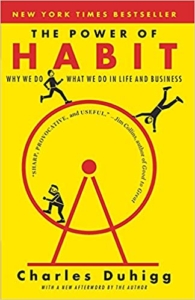Poetry, Anyone?
Along with a whole bunch of other poets and writers, I will be reading at Colophon Cafe in Fairhaven/Bellingham tonight, visiting the Chuckanut Sandstone Writers. Open Mike sign-up is at 6:30; reading commences at 6:50. You should join us!
And if you watch the Events tab, I’ll soon be announcing a whole line-up of readings in November, both close to home and in Portland, Oregon. (If you know of a great venue or open mike there, let me know!)
But why should anyone wish to read to a live audience?
When I was a poetry student at the University of Washington, I was lucky enough to be invited to read at the Castalia Reading Series, hosted by the one-and-only Nelson Bentley. I read every quarter, and sometimes more often, and I found a huge difference between writing for myself, secretly, or at least privately, and writing for others. You can experience this to some extent simply by sharing your work with a small group, and by sending your work out to journals. But performing your work aloud, to an audience? That’s magic.
It’s partly hearing the words aloud, which of course you can do in your room all by your lonesome. Except, it’s partly knowing that other people are hearing your words — knowing, as you prepare, that they will hear your work. When it’s your turn to get up there, you notice what your audience responds to, what sort of trills and riffs resonate. Sound matters, and (I’ve found) something happens to the images, too. You see what makes people sit up and pay attention. Then, all of that information has an effect on revisions, and on future poems. For me, it was a long process of becoming more and more my best writing self.
Listening to other readers is a whole ‘nother part of the experience, of course. All of it extremely scary (at least the first time) and extremely valuable. (Take notes!)


 My post yesterday sounded a little…judgmental. I love our small group at Writing Lab, and though I can imagine a few people more in it, for the most part, I like that we’ve stayed small. There’s time to write, and to share work at the end, because of our size.
My post yesterday sounded a little…judgmental. I love our small group at Writing Lab, and though I can imagine a few people more in it, for the most part, I like that we’ve stayed small. There’s time to write, and to share work at the end, because of our size.
 habit: the insight that your habits are what you choose them to be. Once that choice occurs — and becomes automatic — it’s not only real, it starts to seem inevitable, the thing, as [William] James wrote, that bears ‘us irresistibly toward our destiny, whatever the latter may be.’
habit: the insight that your habits are what you choose them to be. Once that choice occurs — and becomes automatic — it’s not only real, it starts to seem inevitable, the thing, as [William] James wrote, that bears ‘us irresistibly toward our destiny, whatever the latter may be.’
